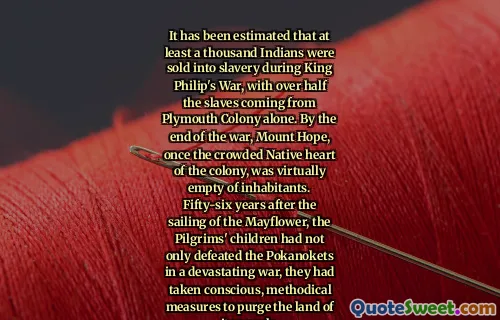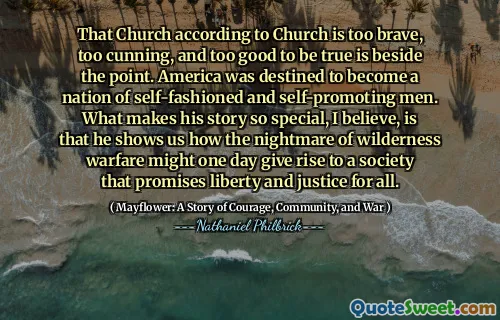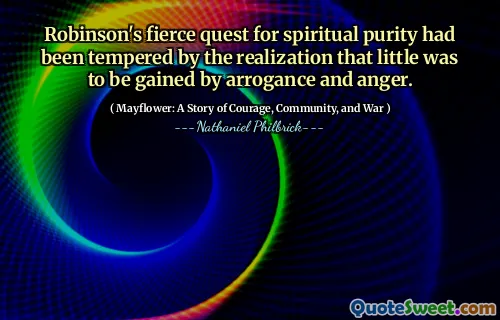
By doing their best to destroy the Native people who had welcomed and sustained their forefathers, New Englanders had destroyed their forefathers' way of life.
This quote from Nathaniel Philbrick's Mayflower: A Story of Courage, Community, and War provokes a profound reflection on the tragic ironies of history, particularly the complex and often catastrophic interactions between European settlers and Native Americans. It highlights a paradox wherein the New England settlers, who initially depended heavily on the Native people's goodwill and support for their survival, ultimately pursued policies and actions aimed at the destruction of those very communities. This self-destructive trajectory reveals how the settlers, in their bid to assert dominance and expand their settlements, undermined the foundations that had allowed them to thrive in the first place.
The quote forces us to confront uncomfortable truths about colonial history — not just in terms of conflict and conquest, but in the erasure and moral costs embedded in the settlers' quest for survival and prosperity. It underscores how the settlers' identity and way of life were irrevocably intertwined with the Native presence. Destroying the Native people was effectively reshaping and destroying the original social and ecological contexts that sustained both groups.
Beyond historical analysis, this reflection speaks to broader themes of cultural arrogance, the consequences of displacement, and the cyclical nature of violence. It reminds contemporary readers to critically reevaluate narratives of progress and to recognize that the legacies of such conflicts continue to inform current social and political realities. Importantly, it encourages a more empathetic and nuanced understanding of history, challenging us to remember and honor the Native peoples’ vital contributions and enduring resilience despite enduring efforts to erase them.









